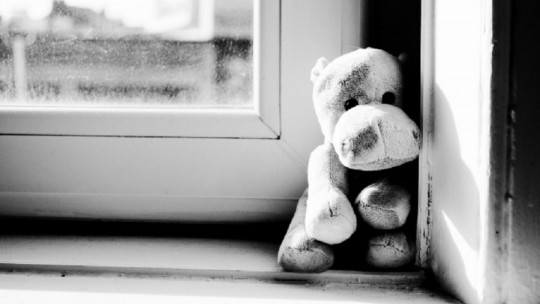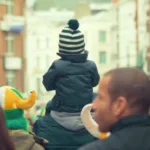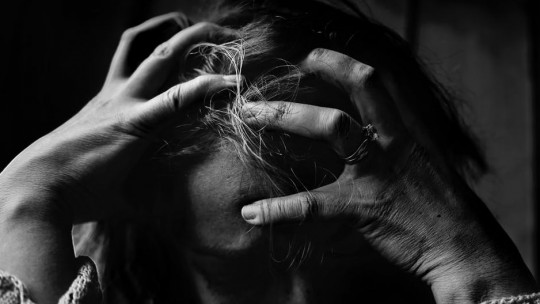In the first installment of the series of articles dedicated to child abuse in childhood, we emphasized the feeling of abandonment, loneliness, darkness and dullness in which the child who is the victim of abuse lives. In the second we focused on the difficulty for the caregiver to realize what is happening, sometimes in front of their own eyes, eyes that for different reasons are very difficult to open.
In this third article we want to focus on the signs that allow us to see, that can help us, or at least guide us, when it comes to discovering if a minor in our environment is suffering abuse. Behaviors, symptoms that any sensitive caregiver should pay attention to and ask themselves what could be happening to that boy or girl to make them behave or feel that way.
The importance of detecting child sexual abuse early
First of all, we would like to state that, On many occasions, more than is believed, the child tries or usually talks about what happened and tells it. but it is also true that this call for help is not explicit enough and its messages come through games, drawings, or also in attempts to tell.
But, even if it is told, it is often ignored, not attended to, or minimized, or its story is questioned, which is why said call is rarely picked up by caregivers, as we reported in the previous article.
It should also be noted that, according to the figures offered in different studies, only between 2% and 8% of children lie when saying that they have suffered some type of sexual abuse. Therefore, we should ask ourselves; both caregivers, professionals and jurists, if we are dealing with that rare 8% at most.
Thus, believing the child in principle is not stupid, and hiding behind the usual: “child things”, “children have a lot of imagination”… is still a comfortable attitude that minimizes and avoids taking responsibility for what what is happening, with dire consequences, since they become a secondary trauma to the abuse itself and which causes confusion to increase and the victim’s ability to tell what happened is forever damaged.
How to detect the signs?
Evidently We do not expect to find the same signs in preschool children as in primary school children or adolescents.
In the case of very young children and precisely given their difficulty in having a minimum awareness of what is happening, we must be attentive to physical signs that, although they are not very common, are good to investigate, such as: redness, rashes or swelling in the genital area, urinary infections and the like, as well as irritability or low mood. Sometimes we will find persistent somatizations such as chronic headaches or stomach pains.
In any case, at these ages, one of the most common signs is excessive sexualization of behavior and language such as adopting sexualized positions, presenting a sexual attitude with their toys and/or talking and giving details of sexual aspects, or addressing others in a sexualized manner.
Between 6 and 12 years old, it is expected to find the same physiological signs mentioned above, which would cover aspects such as: pain, bleeding, secretion or other physical trauma to the genitals, anus or mouth, genital infections in girls or sexually transmitted diseases, recurrent pain when urinating. or defecate, or even difficulty swallowing.
However, the most frequent signs are psychological. The child suddenly begins to have nightmares or insomnia with no apparent explanation. He appears distant or distracted in strange situations. Sudden changes appear in appetite (increase or decrease), as well as in mood; anger, fear, insecurity, withdrawal, etc. Sometimes it leaves clues that encourage conversations of sexual content in the environment. Shows new or unusual fear of certain places or people. He refuses to talk about secrets he shares with any elder. He writes, draws, plays, or dreams with sexual or frightening images. He talks about a new older friend he has met. Suddenly, for no apparent reason, he has money, toys, or other gifts. He sees himself or his body as repulsive, dirty or bad. He presents behaviors, language and sexual knowledge typical of adults.
During adolescence, there is usually a greater awareness of what has happened and/or is happening. It is a stage in which the egocentrism typical of more infantile stages takes center stage again and they will take responsibility and blame for what happened, generating and increasing shame and self-rejection. The beginning of romantic relationships can be an activator of the traumatic experience, which can lead to avoidance behaviors and extreme fear of sexual relations or on other occasions to risk behaviors, where sexuality is used as a means of receiving affection and attention.
Sometimes, the same changes typical of adolescence at a maturational level favor or encourage the generation of complaints and an attempt to put limits on this abusive behavior. This is always easier if they have a supportive and understanding partner, a safe environment or appropriate therapeutic support.
To do?
If even the slightest sign of suspicion is observed, it may be the result of sexual abuse or another problem in the teenager’s life. Let’s take time to talk and seek help. If we recognize several indicators in a teen we know or if the teen reveals that she has been a victim of sexual abuse, call the police or child protective services and seek help immediately.
In the case of adolescents, obviously, it seems to be expected to be able to inquire more openly about what is happening, but experience shows that the confusion and darkness typical of other ages of childhood also happens in adolescence, so it is not We can settle for the teenager not telling or denying that anything is happening with him.
Telling it many times is the beginning of a new hell, the family system can falter, one’s vulnerability is revealed in a very complex stage. So It is not at all implausible that they would deny what was said given the visibility generated by their complaint. , visibility loaded with tension and incomprehension, something that is very difficult to handle. Therefore, it is understandable that denying it is a way for the pressure, the visibility, the pain to end. Consequently, a denial should not relax us and accommodate us to the “ah, it didn’t happen, thank goodness.”
That is why We must take into account all the variables and above all an empathetic and reflective look that goes beyond our astonishment and fear. Signs that we can find: signs of depression or anxiety, self-destructive behaviors, suicidal thoughts or attempts, drug and alcohol abuse, sexual promiscuity, running away from home, fear of intimacy or closeness, extra money or unexplained gifts, etc.
All these signs obviously do not always have a direct relationship with sexual abuse and can be secondary to many other traumatic events, simply saying that, on many occasions, when suspected, they can be clarifying elements. Taking care of them and paying attention to them, whatever the cause, can be the beginning of getting out of a situation that is beyond your control.
In any case, no one, no caregiver should face this type of situation alone. Let us remember that sexual abuse always occurs in a context of isolation for the child or adolescent. This is why we strongly recommend always talking to someone you trust, asking for specialized therapeutic advice and help, and educating yourself about child sexual abuse through existing resources in your area of residence.
It is good to take into account the signs detailed in this article, as well as feel comfortable when talking about the topic. Most of the time the child will not reveal what happened the first time, and will even evaluate the adult’s attitude when telling. If this transmits calm and confidence, it will be easier to tell it. Sometimes it takes a child weeks, months, or even years to reveal abuse. Be that as it may, to do this we have to have a reasonable understanding of sexuality, as well as the stages of sexual development in children and adolescents according to age and always appear calm, confident and empathetic with the victim.
Authors: Javier Elcarte & Cristina Cortés, psychologists specializing in trauma. Founders and directors of Vitaliza.









